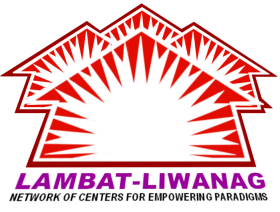|
1
|
1. Total Human Development and Harmony
Through Synergism |
 Synergism and the Cosmic Human-- in Cosmology, Philosophy, &
Spirituality
Synergism and the Cosmic Human-- in Cosmology, Philosophy, &
Spirituality
 Synergism and the Biological Human-- in Anatomy/Physiology, & Biosphere
(symbiosis, bio-diversity in ecosystems, etc.)
Synergism and the Biological Human-- in Anatomy/Physiology, & Biosphere
(symbiosis, bio-diversity in ecosystems, etc.)
 Synergism and the Social Human-- in Social Basics, in Economics, in
Health and Health Care, in Aesthetics, & in Culture
Synergism and the Social Human-- in Social Basics, in Economics, in
Health and Health Care, in Aesthetics, & in Culture
|
THE 15 EMPOWERING PARADIGMS: |
1.
Total Human Development and Harmony Through
Synergism
2.
Holistic Health Care and Medicine
3.
Deep Ecology and Harmony with Nature
4.
Sense of History and Sense of Mission
5.
Civics and Democratic Governance
6.
Culture as Community Creativity
7.
Light-Seeking and Light-Sharing Education
8.
Gender Sensitivity, Equality & Harmony
9.
Reconstructive/Restor-ative Justice
10.
Associative Economics, Social Capital and
Sustainable Development
11.
Synergetic Leadership and Organizations
12.
Appropriate/Adaptive Technology
13.
Mutual Enrichment of Families and Friendships
14.
Human Dignity and Human Harmony: Human Rights and
Peace
15.
Aesthetics Without Boundaries: 'Art from the
Heart'
. |

Bridges of
Belief:
'Golden Rule' in Various Faiths*
By
Peter
Schier
of the Konrad
Adeneuer Foundation & inaugural member of MIN-CC, Malaysia
Enriched by research
work done by Orlando Tiu de Guzman
THE GOLDEN RULE is the most fundamental common ethical denominator of all religious and non-religious belief systems on Earth.
THE GOLDEN RULE is the most fundamental common ethical denominator of all religious and non-religious belief systems on Earth.
In fact, the GOLDEN RULE is a rather simple but very profound precept.
It means: "TREAT OTHERS AS YOU WOULD LIKE TO BE TREATED" or "Do not treat others as you would not like to be treated."
This is the basic law of peaceful human coexistence and can, therefore, be characterized as the mother of ethics or the constitution of humankind.
As a matter of fact, the GOLDEN RULE is found in the holy scriptures of all major religions and faiths in different words but with the same divine meaning:
Hinduism:
"This is the sum of duty: do naught unto others which would cause you pain if done to you."
--Mahabharata 5:1517
Zoroastrianism:
"That nature alone is good which refrains from doing unto another whatsoever is not good for itself"
--Dadistan-i- dinik 94:5
"Whatever is disagreeable to yourself do not do unto others."
--Shayast-na- Shayast 13:29
Judaism:
"What is hateful to you, do not do to your neighbor: that is the whole Torah (the basic law; all the rest of it is commentary; go and learn."
-Rabbi Hillel, Talmud, Shabbat 31a-
Buddhism:
"A state that is not pleasing or delightful to me, how could I inflict that upon another?"
--Samyutta Nikaya v. 353
"Hurt not others in ways that you yourself would find hurtful."
--Udana-Varga 5:18
Confucianism:
"Do not do to others what you do not want them to do to you"
--Analects 15:23 "One should not behave towards others in a way which is disagreeable to oneself" --Mencius VII.A.4
Taoism:
"Regard your neighbor's gain as your own gain, and your neighbor's loss as your own loss."
--T'ai Shang Kan Ying P'ien 213-218, Lao Tzu
Jainism:
"A man should wander about treating all creatures as he himself would be treated."
--Sutrakritanga 1.11.33, Mahavira
Christianity:
"In everything, do to others as you would have them do to you; for this is the law (of God) and (the teachings of) the prophets."
--Matthew 7:12 ; Luke 6:31
Shinto:
"The heart of the person before you is a mirror. See there your own form"
Islam:
"No one of you is a believer until he desires for his brother that which he desires for himself."
--Hadith of an-Nawawi 13
Sufism:
“If you haven't the will to gladden someone's heart, then at least beware lest you hurt someone's heart, for on our path, no sin exists but this."
--Dr. Javad Nurbakhsh, Master of the Nimatullahi Sufi Order
Sikhism:
“Do as you desire goodness for yourself as you cannot expect tasty fruits if you sow thorny trees.”
--Sri Guru Granth Sahib, Slok 23, p. 1379
Pima (Native American):
"Do not wrong or hate your neighbor. For it is not he who you wrong, but yourself."
Bahá'í:
"Ascribe not to any soul that which thou wouldst not have ascribed to thee, and say not that which thou doest not." "Blessed is he who preferreth his brother before himself."
--Baha'u'llah
"And if thine eyes be turned towards justice, choose thou for thy neighbour that which thou choosest for thyself."
--Epistle to the Son of the Wolf
Wicca:
"And it harm no one, do what thou wilt"
--The Wiccan Rede
Tagalog Spirituality:
"That which you do not want others to do unto your spouse, child and sibling, do not do to another's spouse, child and sibling."
--Emilio Jacinto, Kartilya ng Katipunan
Indigenous Spirituality:
"Do not strive to cause your neighbor?s undoing, for as you strive for your own good treatment, so render it to others."
Yoruba (Nigeria):
"One going to take a pointed stick to punch a baby bird should first try it on himself to feel how it hurts."
Unitarian Universalism:
"We affirm and promote respect for the interdependent of all existence of which we are a part."
--Unitarian Principles
Ancient Greece:
"Do not do unto others what angers you if done to you by others."
--Socrates (436-338 BCE)
There are many other moral values and ethical standards which are shared by all faiths and belief systems, like the respect for human rights (i.e. every human being must be treated humanely), love and compassion, justice, caring and sharing, environment (nature) protection, honesty, integrity, accountability, etc.
Let us try to make the Golden Rule and the many other common ethical standards and shared moral values to be accepted as the global ethic of human kind by as many people as possible! Obviously, if the great majority of people practice the Golden Rule, we would definitely live in a better and much more peaceful and just world.
We should do this not only in our families but also in the school system. This means that education about the Golden Rule, shared moral values and common ethical standards should become an integral part of the curricula. Such an education would be a peaceful but forceful weapon against the spread of extremism on all sides. Mahabharata 5:1517
|
*
The inclusion of this article in the holdings of the
Lambat-Liwanag On-Line Library
is an indication that we are strongly recommending this for
perusal by serious students of the Empowering Paradigms. We
have not been able to secure information as to whom and at
what address we should write in order to request official
permission for its inclusion. As soon as we receive
such information, we shall seek the permission, and if such
is officially denied, we are ready to remove this item in
this collection, albeit reluctantly.
We can be reached via
lambat.liwanag@yahoo.com.
|
back to top  post a comment
post a comment
|
|
Created
and
Maintained
for

by
our 'cyber arm':

TIMES
VISITED:

|
|
To
open the lambat-liwanag main site, please click
here. |
|
LAMBAT-
LIWANAG
Network
for
Empower-ing Paradigms
(formed in
2001)
is proud to be a founding member- organization of

formalized
in its 1st General Assembly last November 15, 2008
click
here
for info. |
|
For
info on these fraternal organizations
of
KAMALAYSAYAN within the family of
PAMAYANANG
SANIBLAKAS,
click
here
PAMAYANANG
SANIBLAKAS
MEMBER
GROUPS:
Advocates of Cooperative
Education on Synergism
Consumers & Communicators for
Truthful Information
Galing-Pilipino Movement
Kaisahan sa Kamalayan sa
Kasaysayan
Kaisari Movement for Gender
Harmony
Kilusang Kartilya
Kilusang Lakas-Pamayanan
Lambat-Liwanag Net-
work for Empowering Paradigms
LightShare Digest
(magazine)
LightShare e-Mail List
Group
Living Learnings League
National Economic
Protectionism Association
SanibDasal Synergetic
InterfaithPraying Comm'ty
SanibLakas ng mga Aktibong
Lingkod sa Inang Kalikasan
SanibSigla Movement for
Holistic Health
Sanib-Sining Movement for
Synaesthetics
SYCONE Humanity
Tambuli ng Dakilang Lahi (magasin)
|
| |
|

Keep
the Flame of Truth Alive in our Hearts!
|
|